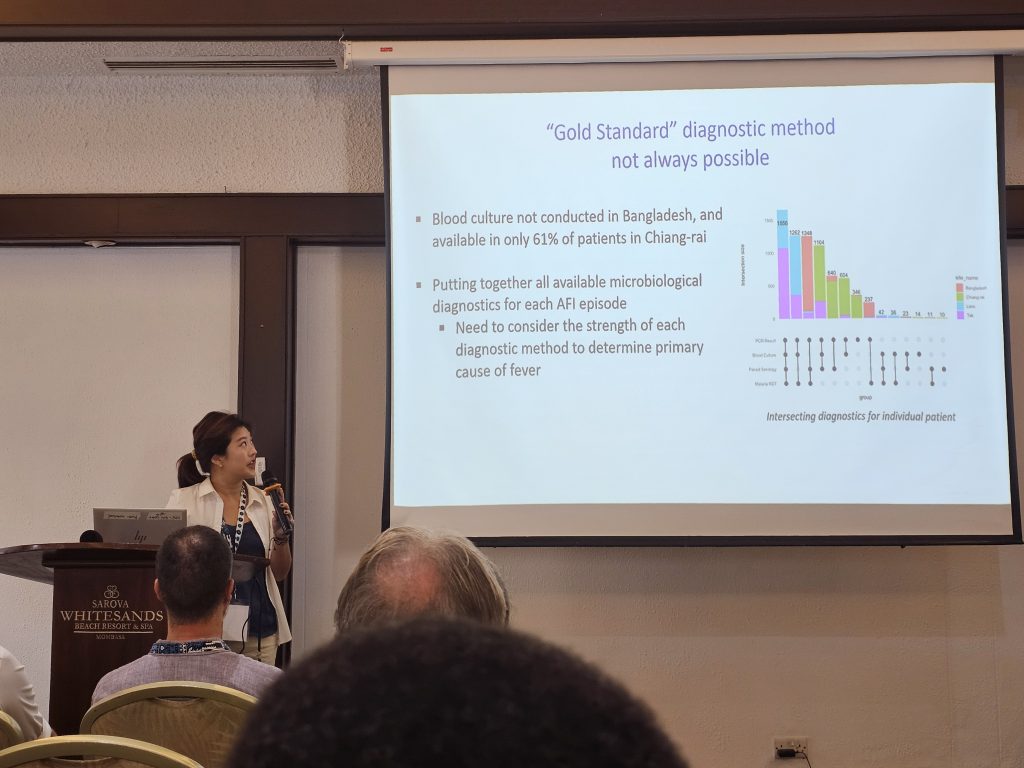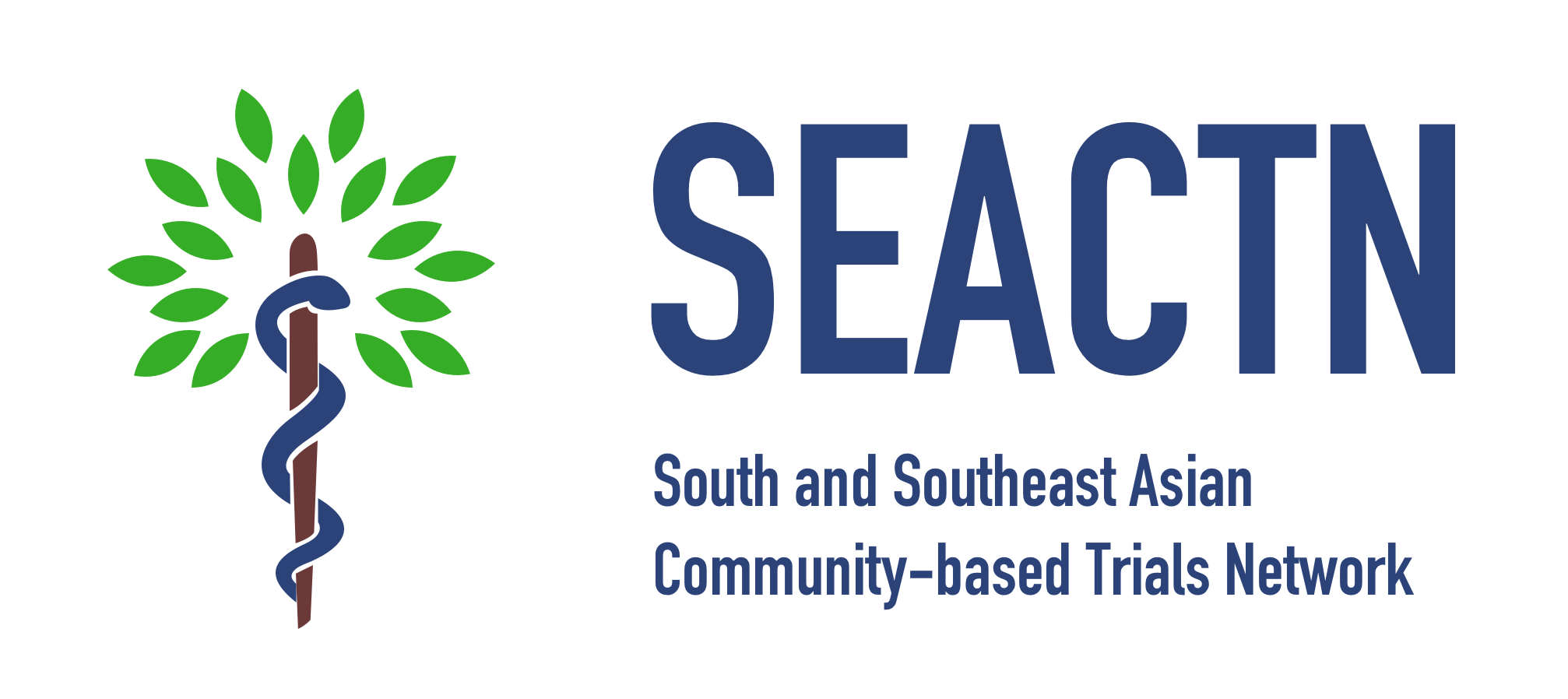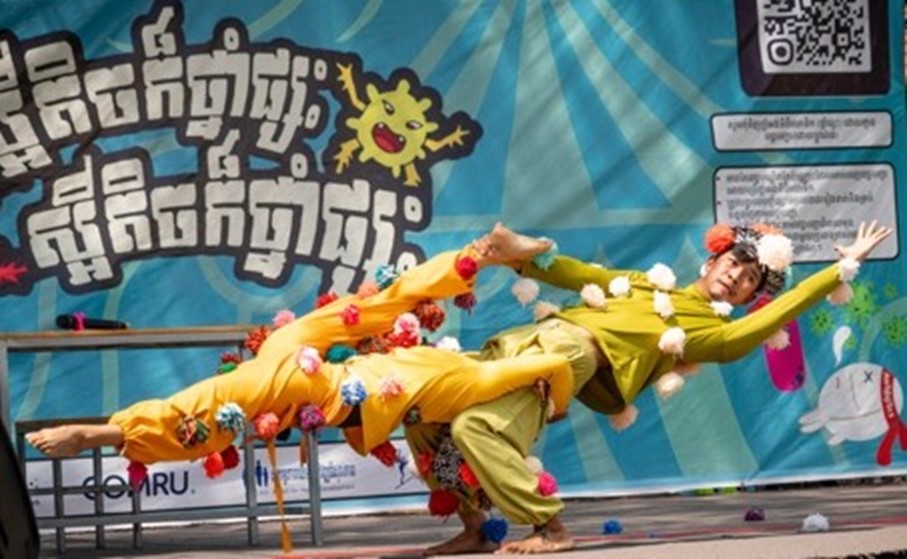From 15-18 Sept, members of the Oxford Tropical Network (OTN) plus invited guests including Wellcome Trust, AHRI and the Malawi-Liverpool-Wellcome Programme congregated in Mombasa, Kenya for 4 days of talks and networking at OTN 2025 https://otn2025.kemri-wellcome.org/.

Image: PhD student Sophie Kang presents her findings on ‘Using sero-diagnosis to determine B. pseudomallei as a cause of acute febrile illness hospitalizations in rural communities of SE Asia‘.
In a well-attended symposium, Prof Yoel Lubell and the Southeast Asian Community Trials Network (SEACTN) team gave a series of talks presenting key findings for the causes of febrile illness in hospitals across SE Asia and the performance of host biomarkers in identifying patients in high risk of severe outcomes. This was very well received, leading to subsequent discussion regarding follow on projects with collaborators across the network. Well done to our speakers: Liz Batty (Chairperson); Tom Peto (Overview of the SEACTN); Sophie Kang (Using sero-diagnosis to determine B. pseudomallei as a cause of acute febrile illness hospitalizations in rural communities of SE Asia); Abdullah Saeed Khan (Biomarkers for prediction of severity in patients with febrile illness); Aorarat Suntronpong (Metagenomic sequencing to inform febrile aetiology in Southeast Asia).
Text by Thomas J Peto and Yoel Lubell.




